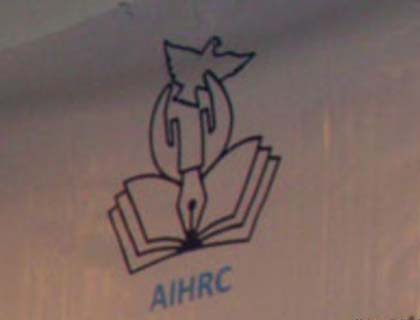KABUL - That call will come along with an announcement by the donor countries that Afghanistan has so far lived up to only 3 of the 17 commitments it made to qualify for billions of dollars in reconstruction aid after 2014. One of those 17 commitments was to establish an impartial Afghanistan Independent Human Rights Commission.
Afghan officials and the donors agreed a year ago to tie future aid to progress in improving government and fighting corruption, under the Tokyo Mutual Accountability Framework, which established 17 performance benchmarks. Some $4 billion is at stake.
The announcement on Wednesday will say that while 14 of the 17 benchmarks have not been achieved, they “are works in progress in various degrees by the Afghan government,” in the words of one European diplomat, who spoke on condition of anonymity because the talks so far are confidential.
On the human rights commission, though, the donors appear less disposed to give the Karzai government the benefit of the doubt, after human rights and women’s activists reacted angrily to Mr. Karzai’s choices for new commissioners, who are supposed to be apolitical and independent and have backgrounds in human rights.
One of the appointees, Qadria Yazdanparst, declared in an interview Monday that she intended to run for president next year. Another, Mualavi Abdul Rahman Hotak, is a former Taliban official who said he believed his background as an Islamic scholar qualified him in human rights.
The top United Nations human rights official, Navi Pillay, took the unusual step last week of publicly calling for the Afghan government to “reopen the selection process in line with the requirements” of international human rights standards, known as the Paris Principles.
A spokesman for Mr. Karzai said the appointments were “an internal matter” that was none of Ms. Pillay’s affair.
The commission is financed almost entirely by international donors, particularly Canada and several European countries, although not the United States. Its budget for the coming year has increased to nearly $12 million as the commission takes on additional monitoring duties in connection with election participation, particularly by women.
“The donors are furious about the human rights commission, particularly Canada,” said another Western diplomat. A spokeswoman for the Canadian Embassy declined to comment.
The donor countries that support the commission are also expected to contribute to the $4 billion in reconstruction aid that was agreed to in Tokyo, contingent on the 17 benchmarks.
Of the 17, the three that have been deemed to be achieved are technical in nature — budgetary and fiscal controls and a plan for Afghanistan to join the World Trade Organization.
Much thornier issues remain, including human rights and two laws to provide for the appointment of independent elections officials for the presidential election in April 2014.
“The time for complacency is gone,” one diplomat said, adding that in many Western countries, the government and the public will lose patience with Afghanistan if the goals are not met.
Another sticking point among the 17 benchmarks is one calling for meaningful prosecution of the politically well-connected figures who were responsible for looting the Kabul Bank. Although 21 people were convicted in that case, Western officials say their penalties have been too lenient, and too little of the stolen money has been recovered. (Agencies)

